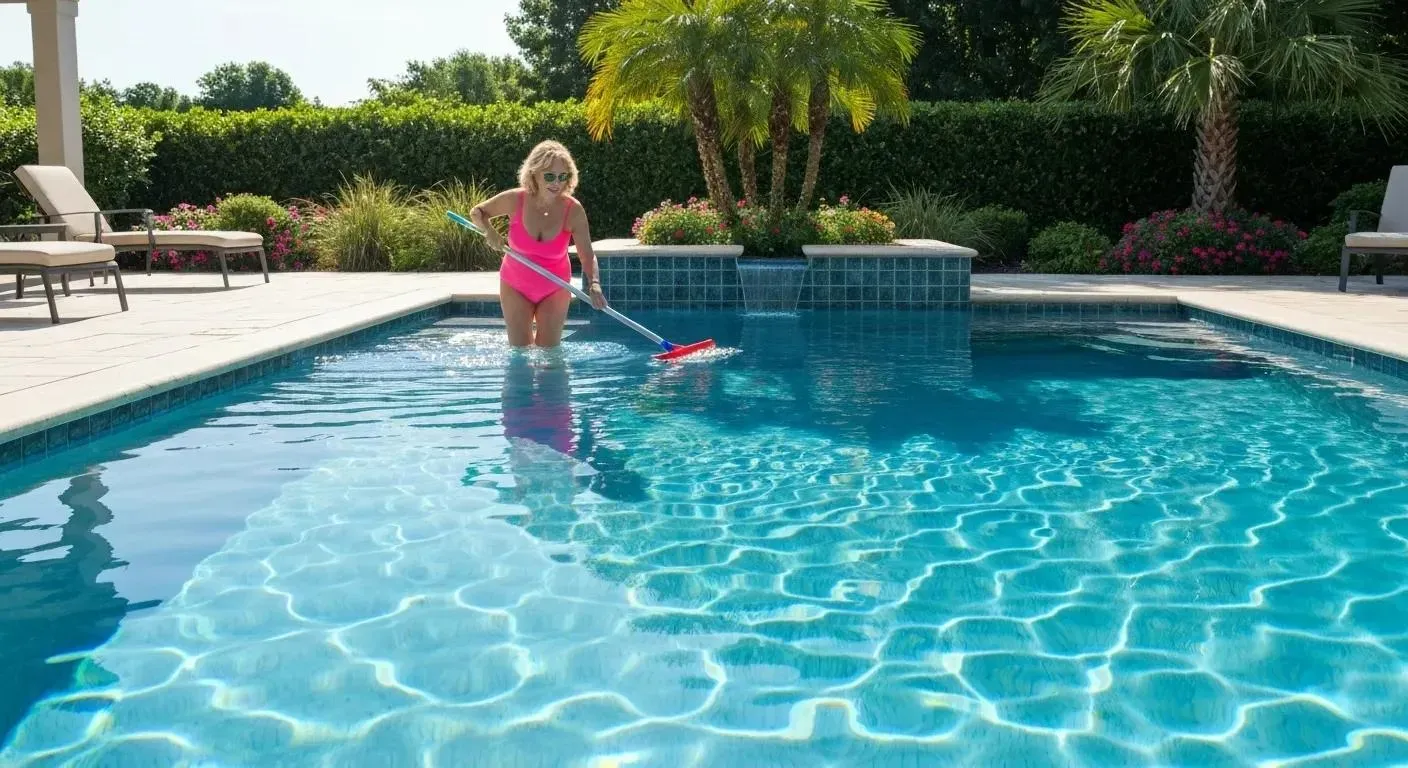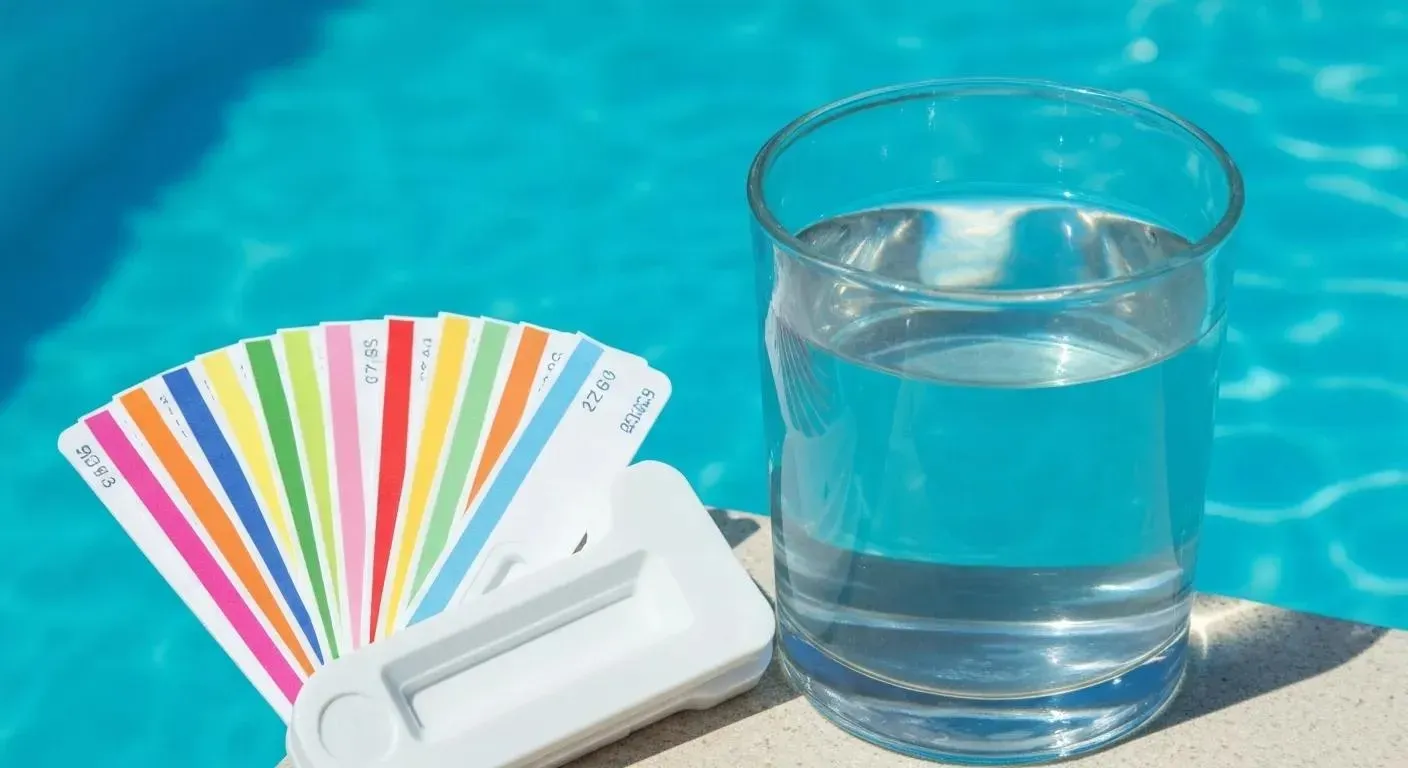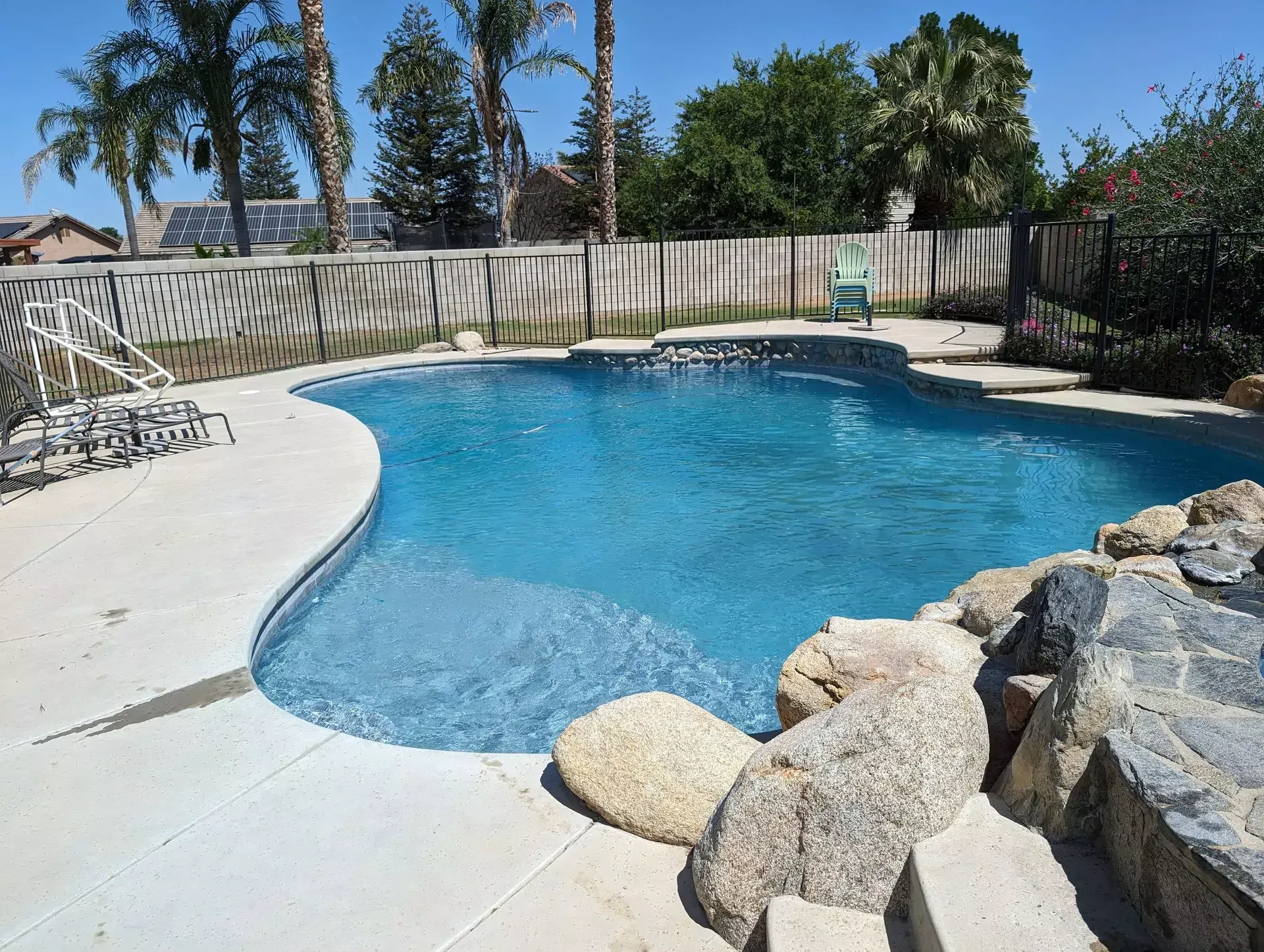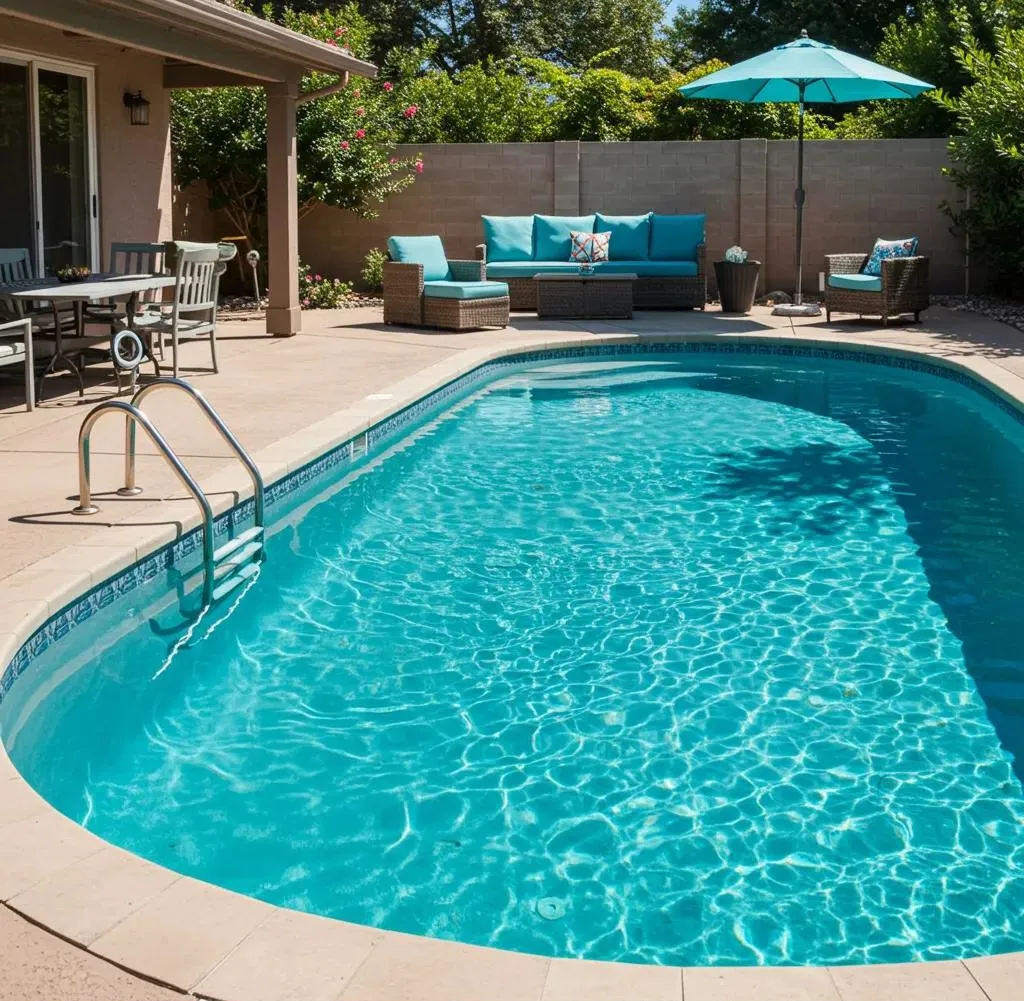Essential Pool Cleaning Tips for Bakersfield Homeowners: Expert Advice for Clean, Safe, and Well Maintained Pools

Maintaining a pristine swimming pool in Bakersfield demands more than occasional netting; it starts with a structured weekly routine, precise water chemistry, and timely problem diagnosis to safeguard health and equipment. This guide equips homeowners with expert pool cleaning tips for Bakersfield, covering essential weekly maintenance tasks, chemical balancing methods, solutions for common issues, adaptations to the local climate, and an overview of professional cleaning and repair services for long lasting pool performance.
By reviewing these critical themes, routine skimming and brushing, optimal pH and sanitizer levels, algae removal techniques, climate specific adjustments, and service options, you’ll transform your pool into a safe, crystal clear oasis while understanding when Bakersfield Pool Repair’s specialists can support complex maintenance challenges.
What Are the Most Effective Weekly Pool Maintenance Tasks for Bakersfield Pools?
Effective weekly maintenance ensures debris free water, balanced filtration, and early detection of potential issues. Focusing on debris removal, surface brushing, vacuuming, and filter upkeep prevents algae, equipment strain, and chemical imbalances, laying the groundwork for optimal long term swimming pool health.

How Should Bakersfield Homeowners Skim and Remove Debris Daily?
Daily skimming eliminates leaves, insects, and dust particles before they settle, preserving water clarity and reducing filter workload. Use a fine mesh skimmer for at least five minutes each morning, then empty skimmer and pump baskets to maintain proper flow. Consistent debris removal supports filter efficiency and helps maintain balanced water chemistry, preparing the pool for the next brushing and vacuuming steps.
Why Is Brushing Pool Walls and Floors Crucial for Algae Prevention?
Brushing dislodges algae spores and prevents buildup on plaster, tile, and vinyl surfaces, keeping sanitizer levels effective. By scrubbing walls and floors weekly, homeowners disrupt algae growth cycles and improve filtration performance. Regular brushing extends the life of swimming pool surfaces and ensures that vacuuming captures loosened particles before they accumulate.
What Are the Best Vacuuming Techniques for Residential Pools?
Vacuuming completes the cleaning cycle by removing settled debris that skimming and brushing loosen. Homeowners should choose between manual vacuum hoses and automatic cleaners based on pool size and complexity. To compare suction methods and efficiency, consider this overview:
| Vacuum Type | Coverage Area | Efficiency |
|---|---|---|
| Automatic Suction Cleaner | Floors and walls | Operates independently, covers entire surface |
| Manual Vacuum with Hose | Targeted spots | Allows precise control over stubborn debris |
| Robotic Pool Cleaner | Total pool interior | Energy efficient with programmable cycles |
Each vacuuming method prevents dirt re suspension and readies the pool for effective filtration, which we’ll address next.
How Often Should Swimming Pool Filters Be Cleaned and Maintained in Bakersfield?
Filters trap microscopic particles, so timely cleaning restores flow and supports sanitizer distribution. The optimal cleaning frequency depends on filter type and local dust levels.
| Filter Type | Cleaning Interval | Maintenance Benefit |
|---|---|---|
| Cartridge | Every 4–6 weeks | Removes debris, extends cartridge life |
| Sand | Every 3–6 months | Backwashing restores sand performance |
| Diatomaceous Earth | Every 2–3 months | Enhances fine particle removal |
Consistent filter maintenance reduces pump strain and preserves clear water, leading into proper water chemistry management.
How Can Bakersfield Homeowners Balance Pool Water Chemistry for Optimal Health?
Balanced water chemistry prevents irritation, equipment corrosion, and algae outbreaks. By controlling pH, sanitizer levels, alkalinity, and hardness, homeowners ensure swimmer safety and extend the life of pool equipment and surfaces.

What Is the Ideal pH Range for Bakersfield Swimming Pools?
Maintaining a pH between 7.4 and 7.6 optimizes sanitizer efficiency and prevents eye or skin irritation. pH outside this range leads to scaling or corrosion, affecting equipment longevity.
Optimal pH Range for Swimming Pools
Maintaining a pH level between 7.4 and 7.6 is crucial for effective sanitizer performance and to prevent skin and eye irritation. This range ensures the chlorine can properly sanitize the water and protects pool equipment from corrosion or scaling.
World Health Organization, Guidelines for Safe Recreational Water Environments (2003)
This research supports the article's recommendation for maintaining a specific pH range to ensure swimming pool water safety and equipment longevity.
How Do Chlorine Levels Affect Pool Sanitation and Safety?
Free chlorine concentrations between 1.0 and 3.0 ppm neutralize pathogens and control algae. Liquid bleach, chlorine tablets, or saltwater systems deliver consistent sanitizer distribution when paired with proper pH.
Why Are Alkalinity and Calcium Hardness Important for Pool Water Balance?
Total alkalinity (80–120 ppm) buffers pH fluctuations, while calcium hardness (200–400 ppm) prevents surface corrosion or scaling. Both parameters stabilize water balance and protect pool materials.
What Are the Recommended Testing and Chemical Adjustment Methods?
Homeowners should use reliable test kits or strips weekly to measure and pay attention to pH, chlorine, alkalinity, and hardness, then apply appropriate chemicals pH increasers, chlorine shock, alkalinity increasers, or calcium chloride to reach target levels. Consistent testing ensures timely corrections and prevents cascading issues.
How Can Bakersfield Homeowners Identify and Solve Common Pool & Hot Tub Problems?
Proactive problem solving addresses minor issues before they escalate into costly repairs, preserving both water quality and equipment health.
What Are the Signs of Algae Growth and How to Remove It Effectively?
Green or black algae appears as cloudy water or dark spots on surfaces. Effective removal requires intensive brushing, vacuuming to waste, shocking the water with a high dose chlorine treatment, and applying an algaecide. Persistent outbreaks may signal filter or circulation issues.
Algae Growth and Removal
Algae growth in swimming pools can be identified by cloudy water or dark spots on surfaces. Effective removal involves brushing, vacuuming, shocking the water with chlorine, and applying algaecide. Persistent outbreaks may indicate filter or circulation issues.
National Swimming Pool Foundation, The Certified Pool Operator Handbook (2019)
This source provides a complete guide to pool maintenance, which supports the article's advice on identifying and addressing algae problems.
How to Detect and Respond to Pool Leaks in Bakersfield?
Unexplained water loss exceeding typical evaporation rates indicates a leak. Homeowners can conduct a bucket test, inspect plumbing fittings, and monitor equipment for moisture. Professional leak detection services use electronic sensors and dye tests to pinpoint faults accurately.
When Should You Call a Professional for Pool Equipment Repairs?
Unusual pump noises, reduced flow, heater malfunctions, or persistent filter pressure issues require expert troubleshooting. Certified technicians diagnose motor wear, clogged impellers, or heater element failures, ensuring safe and cost effective repairs.
How to Recover a Green Pool with Professional Clean Up Services?
Severe algae infestations benefit from professional treatment plans that include drain and fill procedures, high pressure cleaning, and specialized filtration. Bakersfield Pool Repair’s green pool recovery service combines advanced algaecides and optical clarifiers to restore clarity swiftly.
What Are the Unique Pool Cleaning Challenges in Bakersfield’s Climate?
Bakersfield’s high heat, frequent dust storms, and hard water intensify maintenance demands. Understanding these local factors helps homeowners adapt schedules, chemical dosages, and equipment choices for year round pool health.
How Do Dust and Heat Affect Pool Water Quality and Maintenance?
Dust storms introduce fine particles that clog filters and increase chemical demand, while elevated temperatures accelerate evaporation and sanitizer depletion. Frequent skimming, filter checks, and chemical adjustments combat these challenges.
What Are the Best Practices to Prevent Water Evaporation and Chemical Loss?
Using swimming a pool covers during hot, windy conditions reduces evaporation, conserves water, and maintains chemical balance. Solar blankets and automated timers further stabilize temperatures and minimize daily adjustments.
How Does Bakersfield’s Water Quality Influence Pool Chemical Needs?
High mineral content in local water supplies raises calcium hardness and pH, requiring adjusted dosages of acids and scale inhibitors during fill and top off. Pre filtration or saltwater systems can moderate these effects.
What Pool Cleaning and Repair Services Are Available for Bakersfield Homeowners?
Whether tackling routine upkeep or complex equipment issues, homeowners can rely on professional services that enhance longevity, safety, and enjoyment.
What Does Weekly Pool Cleaning Service Include in Bakersfield?
Comprehensive weekly cleaning packages combine skimming, brushing, vacuuming, filter maintenance, and water chemistry balancing, delivering consistent clarity and peace of mind.
How Can Professional Pool Repair Extend Equipment Lifespan?
Expert technicians perform preventive inspections and repairs, lubricating pump seals, calibrating controllers, and replacing worn parts, to maximize pump, filter, and heater efficiency over time.
When Is Acid Washing Recommended and Is It Safe?
Acid washing removes deep set stains, scale, and algae, refreshing plaster or tile surfaces. When performed by trained professionals with proper neutralization steps, it is safe and preserves the integrity of pool finishes.
How Does Leak Detection Save Water and Reduce Costs?
Advanced leak detection pinpoints hidden cracks and faulty seals, preventing thousands of gallons of water loss and reducing chemical waste. Repairing leaks promptly protects landscaping, conserves resources, and avoids structural damage.
Regular at home maintenance and strategic professional support ensure that Bakersfield pools remain vibrant, safe, and inviting year-round. For expert assistance and tailored service plans, get in touch with Bakersfield Pool Repair specialists and schedule a free consultation today.


